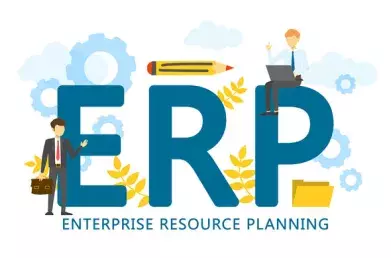ERP Project KPIs – keeping the Steering Team informed
How does a Steering Team know if an ERP implementation project is progressing as it should? One of the ERP Steering Team’s responsibilities is to assist in the removal of any issues that may cause the project to be delayed or otherwise compromised. How do Steering ensure they are aware of problems before they impact on the successful delivery of the project?
First of all, each Steering Team member should schedule regular one-to-one meetings with their representatives on the project team. This will ensure they are keeping their ears to the ground and hearing first-hand about any challenges the team are encountering. The project team members will be reporting directly to the Project Manager, but the Steering Team members need to use the reporting “dotted-line” to provide assistance and guidance and to keep themselves informed of project progress.
Secondly, and in parallel, the Steering Team need to keep track of the ERP project Key Performance Indicators (KPIs). This is no different to what they do when they are running the business, but what is measured and when is unique to an ERP project. The KPIs also change as the project progresses through the stages of the implementation process.

Based on the Lumenia team’s many years of ERP implementation experience, we have developed an ERP reporting dashboard specifically for Steering Teams which encompasses the KPIs that we believe should be included in the Steering Team report. These include:
-
Design
- Workshop progress vs. plan and completion status
- Design issues raised and resolution rate and progress
- Blueprint/design document sign-off status
-
Build
- Configuration progress vs. plan and completion status
- Development/customisation delivery vs plan
-
Test
- Test script development progress
- Test execution progress vs. plan
- Test results
- Issues raised and resolution rate and progress
-
Data Migration
- Data cleansing progress
- Data mapping progress
- Data loading progress and verification status
-
Change Requests
- Numbers logged and approved
-
Training
- Training documentation progress and completion
- Training execution progress vs. plan
These KPIs provide a quantifiable view on the project progress but the commentary that accompanies them is also very important. This is where an experienced ERP Project Manager is invaluable – they will know how to interpret the results and assess and clearly communicate the overall project status.
Indicators are just that – they point management in the right direction. They can never tell the full story on their own, but they do act as a barometer and provide early warning to the Steering Team when things are not as they should be. Good communication between the project team members and the Steering Team, appropriate and timely KPIs and an experienced ERP Project Manager who has a deep understanding of project KPIs and can clearly communicate the project status are key components of good project governance. With these in place the Steering Team members will be kept informed and provided with the opportunity to do what they are there to do – ensure the successful delivery of the project.
This blog was written by Ursula Browne, Managing Partner at Lumenia. For further information please send an email to Ursula Browne.


